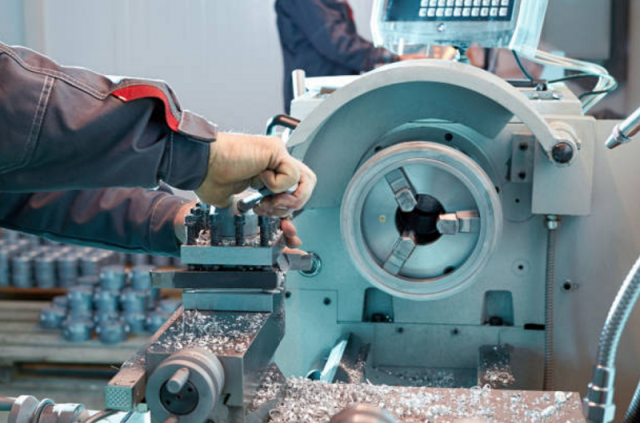Due to the hectic nature of product development, taking an idea through the various stages of development and production to large scale production requires a production partner that is both competent and dependable. A sheet metal fabrication shop is one of the various stakeholders in this process that brings ideas, designed in computer-aided design, to reality, in a form that can be used, and a shape capable of being marketed. These arenas do not just produce, but they are fountains of innovation where creation couples with expertise in engineering. When the aerospace, medical, electronics, and automotive industries require precision fabrication services, it is appropriate to consider a partnership with a precision fabricator on each step of the way, including prototyping, testing, and at full scale manufacturing.
Collaboration on an Early Stage of Design and Prototyping
Among the best contributions that a sheet metal fabrication shop can provide is at the initial parts of the product development. When it comes to a concept that is still being developed, precision fabricators can provide advice and make it easier to manufacture, cost effective and better performing. Common among the strategies that help in checking design inefficiencies are Design for Manufacturability (DFM) consultations where engineers at the fabrication shop review CAD files to detect the possible design inefficiencies. Design ideas could take the form of replacing materials, modifying radius of bends, or simplifying intricately beyond losing functionality. Such amount of coordination ensures that clients do not end up spending a lot of money in reworking at a later stage. Also, the prototyping needed in the design can be carried out in the shop by the use of techniques such as fiber laser cutter and CNC press brake to create rapid prototypes, where the design can be tested in reality. What this means is that engineers, product designers can get informed against making final commitments to costly production tooling, time-to-market and the quality of the product.
Material Procurement and Expertise Process Capabilities
Choosing the appropriate material is also important in sheet metal work because it has a direct relation on how durable, expensive, and heavy the product will be. An expertly run sheet metal shop comes with a strong knowledge base in metals such as stainless, aluminum, copper and exotic alloys. Their experience makes sure that the appropriate material is chosen according to certain requirements of a particular application like resistance to corrosion, thermal conductivity, fluid resistance etc. In addition to sourcing, these shops include special processing capabilities such as laser cutting, TIG/MIG welding, powder coating and precision forming. The processes are customized on various materials to save on structure and achieve strict tolerances. To give an example, what might be needed during welding of aluminum is the controlled heat input whereas a stainless steel may need post fabrication passivation to retain corrosion resistance. Fabrication shops are a one-stop shop; they offer material expertise along with accuracy in execution, Ready to work out any application that requires them.
Narrowing the Gap Between Prototype and Large-scale Manufacture
Going beyond one prototype to hundreds or thousands of pieces is a different ball game altogether that only a well-experienced fabricator would be able to work through successfully. The procedures, tools, and workflow systems in a good sheet metal fabrication store make such scale-up easy. In the course of such a shift, the shop introduces standardized procedures, quality inspection points as well as other production planning tools in order to have consistency. Designs for fixtures and custom-made tooling can be built to automate repeatability and material utilization used is tailored to minimise wastage. Where precision and compliance is a must, as in aerospace, or in medical devices, each component has to conform to strict standards. Here is where the precision sheet metal fabrication coupled with sheet metal fabrication shop experience comes in handy. Automated inspection systems, statistical process controls (SPC) and traceable documentation makes sure that each part, no matter how many are produced, can be done to the same great level of quality as the original prototype.
Quality Control and Compliance with Regulation
In cases where the products require trust and where safety is required, then quality control must be stringent. The concept of quality being built into everything includes inspection of incoming material into the company store, inspection during manufacture, and final test of a finished product. A professional sheet metal fabrication shop should be ISO 9001 or AS9100 certified that takes the form of systematic quality management and traceability. In other areas such as medical technology, more specific certifications are likely to be implemented, for example ISO 13485 to aid with compliance with regulatory agencies such as the FDA or the CE. Some quality control processes might be the use of a 3D coordinate measuring machine (CMM), non-contact laser measuring and cyberscan computer generated inspection reports. These tools confirm that every component is designed according to the minutest specification. Aside from the inspections, regular process audits and training of the staff forms part of the culture of continuous improvement. To clients, this will imply less rejection, speedy acceptance, and certainty that their products are products which are made to perform.
Long-Term Partnerships and Permoldent Innovation
In addition to the short-term value of production support, the sheet metal fabrication shop is of long term value in its embracement of innovation and collaborative effort. To remain competitive and responsive, many fabrication shops invest in the latest technologies, which include those based on IoTs, automated storage, and cloud-based project management systems. This helps them to give evidence-based information on production, lead time, material utilization, and provide their clients with enhanced control to their supply chain. Also, fabricators tend to be close confidants of their clients and assist them in keeping abreast with industry trends and regulation. The continuity in improvement can be seen in searching on sustainable materials, optimization in the design of light weighting, and embracing smart methods of manufacturing through these alliances. Since product life cycles are becoming shorter and there is more and more competition, it helps to have a reliable fabrication partner that can grow with your demands.
To sum up, the road between the prototype and the production may be paved with traps to fall into, but the right partner can turn it into a smooth process adding value to the project. Professional sheet metal fabrication facility offers the expertise and know-how of engineering, technical ability and high quality dedication, which turns early ideas into quality competitive products. With the mastery of technological capabilities of specialists in precision sheet metal production and sheet metal fabrication shop facilities, businesses can improve their growing pace, make smarter scale and produce better outputs to the end consumers. It does not matter whether you are working on a new generation of technology or wanting to improve upon a product line already established, precision fabrication is an investment that pays in every aspect of the process.






